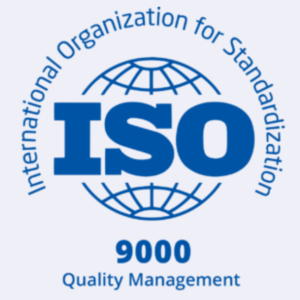Navigating the Entrepreneurial Landscape with insights from Michael Gerber’s classic book.
Welcome to the dynamic entrepreneurial world of 2024, where challenges and opportunities abound. In this fast-paced era, Michael E. Gerber’s classic, “The E-Myth Revisited,” continues to provide timeless insights for business owners striving to thrive amid the ever-evolving landscape.
The book, “The E-Myth Revisited: Why Most Small Businesses Don’t Work and What to Do About It” was first published in 1986 and later revised in 1995. It explores the common pitfalls that small business owners face and offers insights on how to overcome them.
As Gerber said, the word “E-Myth” is a mistaken belief that most businesses are started by entrepreneurs risking capital to make a profit. Instead, he argues that most small businesses are started by technicians, such as someone skilled in a particular craft or trade, who then find themselves overwhelmed by the demands of running a business.
Gerber also provides practical advice and a framework to help small business owners transform their operations and become more strategic in their approach.
For example, the book introduces the idea of working “on” your business rather than just “in” it – emphasizing the importance of systems, processes, and the development of a franchise prototype for achieving business success.
“The E-Myth Revisited” by Michael E. Gerber offers valuable insights for entrepreneurs and business owners. Here are ten key takeaways from the book, along with considerations for applying these principles in 2024:
1. Work Smart, Not Just Hard:
Gerber’s wisdom encourages entrepreneurs to step back and strategically work on their businesses. This means leveraging cutting-edge technology to automate routine tasks, freeing up time for strategic decision-making. In 2024, technology can play a crucial role in automating repetitive tasks, allowing you to focus on higher-level business decisions.
Take the time to step back and work on strategic aspects of your business, such as developing systems and processes.
2. Develop Tech-Driven Systems and Processes
In a world dominated by digital advancements, building robust systems and processes is crucial. Create standardized systems for key aspects of your business to ensure consistency and efficiency.
Leverage technology tools and advancements available in 2024 to streamline and automate processes, improving overall business operations. Embrace the technological tools available to streamline operations, ensuring efficiency and consistency across your business.
3. Build a Franchise Prototype for Scalability in the Digital Age
While not everyone plans to franchise, developing a scalable business model remains paramount. In 2024, develop a replicable business model that can be scaled or easily duplicated. Even if you don’t plan on franchising, having a standardized and scalable model allows for growth and expansion, taking advantage of emerging opportunities in an increasingly interconnected global market.
4. Document Everything in the Digital Era
In the digital age of 2024, documentation is key, and it’s easier than ever with collaborative digital platforms. Now you can document your business processes, roles, and responsibilities.
Utilize collaborative platforms and project management tools that are easily accessible to your team. By maintaining these comprehensive records, you can foster transparency and efficiency in an age where information is power.
5. Balancing Act: Technician, Manager, Entrepreneur, and Beyond
Understand the three roles and recognize the importance of balancing technical work, managerial responsibilities, and entrepreneurial vision. In 2024, consider how emerging roles and technologies can contribute to more effective management and entrepreneurship.
Embrace Innovation: With evolving roles and technological advances, achieving balance in technical work, managerial responsibilities, and entrepreneurial vision is an ongoing challenge. Embrace the possibilities of 2024 to redefine and optimize these roles within your business.
6. Innovation in the 2024 Business Landscape
Staying relevant means embracing innovation. Stay open to innovation and adapt to changing market conditions. In 2024, the business landscape may evolve rapidly, and embracing new technologies and trends can keep your business relevant and competitive. The pace of change is relentless— so be open to new technologies and trends, ensuring your business remains on the cutting edge.
7. Work Towards Independence in a Digitally Connected World
Aim to create a business that can operate independently of you. This involves delegating responsibilities, empowering your team, and building a culture of accountability. Leverage remote work solutions and digital collaboration tools.
In 2024, the ability to run your business independently is a mark of success. Start by leveraging remote work solutions and digital collaboration tools to empower your team and ensure seamless operations, regardless of physical location.
8. Focus on Customer Experience in the Digital Age
Prioritize the customer experience by understanding and meeting their needs. Leverage data analytics, AI, and customer relationship management tools to enhance personalization and improve customer satisfaction.
9. Plan for Succession in the Digital Realm
Future-proof your business by developing a robust succession plan.
Consider the impact of technological advancements on succession planning and ensure a smooth transition in an ever-changing environment.
10. Continuously Learn and Adapt in the Fast Lane
Adaptability and continuous learning are non-negotiable. Stay ahead of the curve by embracing new challenges and opportunities. Learn to navigate the entrepreneurial journey with resilience and innovation.
Stay curious and be willing to take on challenges and seize new opportunities. In this day and age, ongoing learning and agility are crucial as technology and market dynamics continue to evolve rapidly.
Conclusion
As we venture further into the entrepreneurial landscape of 2024, Michael Gerber’s insights serve as a guiding light.
Overall, “The E-Myth Revisited” is considered a classic in the business genre, and its principles have been influential for many entrepreneurs and business owners. Gerber provides practical advice and a framework to help small business owners transform their operations and become more strategic in their approach.
Applying these principles in 2024 involves leveraging advancements in technology, staying attuned to market trends, and embracing innovative solutions to enhance your business’s overall efficiency and competitiveness.

FAQ
- What is “The E-Myth Revisited” about?
“The E-Myth Revisited” by Michael E. Gerber explores common misconceptions about entrepreneurship, particularly the notion that most businesses are started by entrepreneurs. Gerber argues that many small businesses are initiated by technicians with specific skills, leading them to struggle with the demands of running a business.
- Why is it called the “E-Myth”?
The term “E-Myth” stands for the Entrepreneurial Myth, which is the mistaken belief that most businesses are launched by risk-taking entrepreneurs. Gerber challenges this myth, asserting that most small businesses are initiated by individuals skilled in a trade or craft who may not have the necessary entrepreneurial skills.
- When was the book first published?
“The E-Myth Revisited” was first published in 1986. It gained significant popularity, leading to a revised edition in 1995 that incorporated additional insights and perspectives based on the author’s experiences and feedback from readers.
- What are the key principles discussed in the book?
The book introduces key principles such as working “on” your business rather than just “in” it, developing scalable systems and processes, and creating a franchise prototype for business success. It emphasizes the importance of balancing technical work, managerial responsibilities, and entrepreneurial vision.
- How does the book address common pitfalls for small business owners?
Michael Gerber identifies common challenges faced by small business owners, including the overwhelming nature of business demands for those with technical expertise. The book provides practical advice on transforming business operations and becoming more strategic in approach.
- Is the book relevant for entrepreneurs in 2024?
Absolutely. The principles discussed in “The E-Myth Revisited” are timeless and can be applied to any era. As of 2024, the book remains relevant as it offers insights into fundamental aspects of entrepreneurship, encouraging adaptability to current technological advancements and market trends.
- Can you give examples of businesses successfully applying the book’s principles?
Numerous businesses across various industries have applied the principles outlined in the book to achieve success. These include companies that have streamlined operations, improved customer experiences, and embraced innovation to stay competitive in the rapidly changing business landscape.
- How does the book address the role of technology in business success?
Michael Gerber emphasizes the strategic use of technology to automate routine tasks, allowing business owners to focus on higher-level decision-making. In 2024, the relevance of technology is even more critical, with advancements enabling efficient processes, data analytics, and improved customer interactions.
- Does “The E-Myth Revisited” offer guidance on succession planning?
Yes, the book discusses the importance of planning for the future and developing a robust succession plan. It encourages entrepreneurs to consider the impact of technological advancements on succession planning to ensure a smooth transition in the ever-changing business environment.
- How can I apply the book’s principles to my own business?
The book provides actionable insights throughout its chapters. To apply its principles, start by assessing your current business operations, identifying areas for improvement, and developing systems and processes. Embrace technology, prioritize customer experience, and continuously adapt to stay ahead in the entrepreneurial journey.








